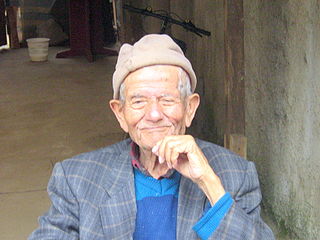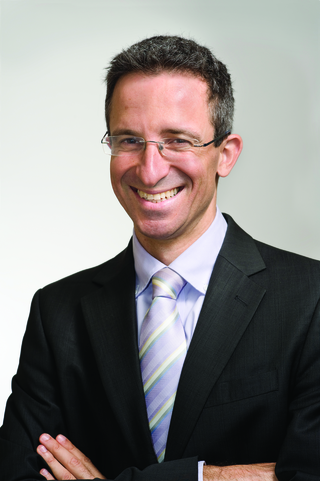
Happiness is a complex and multifaceted emotion that encompasses a range of positive feelings, from contentment to intense joy. It is often associated with positive life experiences, such as achieving goals, spending time with loved ones, or engaging in enjoyable activities. However, happiness can also arise spontaneously, without any apparent external cause.

The Law of Jante is a code of conduct originating in fiction and now used colloquially to denote a social attitude of disapproval towards expressions of individuality and personal success. Coined by the Danish-Norwegian author Aksel Sandemose, it has also come to represent the egalitarian nature of Scandinavian countries.

Children's Day is a commemorative date celebrated annually in honour of children, whose date of observance varies by country. In 1925, International Children's Day was first proclaimed in Geneva during the World Conference on Child Welfare. Since 1950, it is celebrated on 1 June in many countries, which follow the suggestion from Women's International Democratic Federation. World Children's Day is celebrated on 20 November to commemorate the Declaration of the Rights of the Child by the UN General Assembly on 20 November 1959. In some countries, it is Children's Week and not Children's Day. The Sikhs celebrate Children Day on 20 December to 27 December.

Economic materialism can be described as either a personal attitude that attaches importance to acquiring and consuming material goods or as a logistical analysis of how physical resources are shaped into consumable products.

"Don't Worry, Be Happy" is a 1988 song by Bobby McFerrin, released as the first single from his album Simple Pleasures (1988). It was the first a cappella song to reach number-one on the Billboard Hot 100 chart, a position it held for two weeks. Originally released in conjunction with the film Cocktail, the song peaked at number-one on September 24, 1988, displacing "Sweet Child o' Mine" by Guns N' Roses.

Audrey Roberts is a fictional character from the ITV soap opera Coronation Street, played by actress Sue Nicholls. Audrey made her first appearance on 16 April 1979 and appeared on a recurring basis for three years until April 1982. She returned over two years later in July 1984, before becoming a full-time regular character from 1985.
The hedonic treadmill, also known as hedonic adaptation, is the observed tendency of humans to quickly return to a relatively stable level of happiness despite major positive or negative events or life changes.

Nick Tilsley is a fictional character from the British ITV soap opera Coronation Street. He was born off screen during an episode broadcast on 31 December 1980, but made his first appearance on 5 January 1981. He was played by Warren Jackson from 1981 until 6 September 1996. Adam Rickitt took over the role on 15 October 1997 until 21 April 1999 but returned for three separate stints between 2002 and 2004 and made his final appearance as Nick on 11 July 2004. Ben Price took over the role on 21 December 2009. Price announced his intentions to leave the serial on 26 January 2017, before making his on-screen departure on 2 June 2017. However, on 23 April 2018, it was announced that Price would reprise his role as Nick, and he returned on 12 October 2018.

Tal Ben-Shahar, also known as Tal David Ben-Shachar, is an American and Israeli teacher, and writer in the areas of positive psychology and leadership. He has subsequently written several best-selling books and in 2011 co-founded Potentialife with Angus Ridgway, a company that provides leadership programs.
The economics of happiness or happiness economics is the theoretical, qualitative and quantitative study of happiness and quality of life, including positive and negative affects, well-being, life satisfaction and related concepts – typically tying economics more closely than usual with other social sciences, like sociology and psychology, as well as physical health. It typically treats subjective happiness-related measures, as well as more objective quality of life indices, rather than wealth, income or profit, as something to be maximized.

Charles Spearin is a Canadian multi-instrumentalist from Toronto, Ontario. He is primarily known as a founding member of indie rock bands Do Make Say Think and Broken Social Scene.

Hygge is a word in Danish and Norwegian that describes a cozy, contented mood evoked by comfort and conviviality. As a cultural category with its sets of associated practices, hygge has more or less the same meaning in both places and in both languages; however, the emphasis on hygge as a core part of Danish culture is a recent phenomenon, dating to the late 20th century. In the 21st century, the concept has also been familiarized abroad.
Edward Francis Diener was an American psychologist and author. Diener was a professor of psychology at the University of Utah and the University of Virginia, and Joseph R. Smiley Distinguished Professor Emeritus at the University of Illinois, as well as a senior scientist for the Gallup Organization. He is noted for his three decades of research on happiness, including work on temperament and personality influences on well-being, theories of well-being, income and well-being, cultural influences on well-being, and the measurement of well-being. As shown on Google Scholar as of April 2021, Diener's publications have been cited over 257,000 times.

The Happiness Hypothesis: Finding Modern Truth in Ancient Wisdom is a 2006 book written by American social psychologist Jonathan Haidt. In it, Haidt poses several "Great Ideas" on happiness espoused by thinkers of the past—such as Plato, Buddha and Jesus—and examines them in the light of contemporary psychological research, extracting from them any lessons that still apply to our modern lives. Central to the book are the concepts of virtue, happiness, fulfillment, and meaning.
Life satisfaction is an evaluation of a person's quality of life. It is assessed in terms of mood, relationship satisfaction, achieved goals, self-concepts, and self-perceived ability to cope with their life. Life satisfaction involves a favorable attitude towards one's life—rather than an assessment of current feelings. Life satisfaction has been measured in relation to economic standing, degree of education, experiences, residence, and other factors.
Subjective well-being (SWB) is a self-reported measure of well-being, typically obtained by questionnaire.

Paul Dolan is Professor of Behavioural Science in the Department in Psychological and Behavioural Science at the London School of Economics and Political Science. He is Director of the Executive MSc in Behavioural Science which began in September 2014. Dolan conducts research on the measurement of happiness, its causes and consequences, and the implications for public policy, publishing in both scholarly and popular outlets. He has previously held academic posts at York, Newcastle, Sheffield and Imperial College London and he has been a visiting scholar at Princeton University. He is the author of two popular press books: Happiness by Design and Happy Ever After and the creator and presenter of the Duck-Rabbit podcast.
Laurie Renee Santos is an American cognitive scientist and professor of psychology at Yale University. She is the director of Yale's Comparative Cognition Laboratory, Director of Yale's Canine Cognition Lab, and former Head of Yale's Silliman College. She has been a featured TED speaker and has been listed in Popular Science as one of their "Brilliant Ten" young scientists in 2007 as well as in Time magazine as a "Leading Campus Celebrity" in 2013.

An edit-a-thon is an event where some editors of online communities such as Wikipedia, OpenStreetMap, and LocalWiki edit and improve a specific topic or type of content. The events typically include basic editing training for new editors and may be combined with a more general social meetup. The word is a portmanteau of "edit" and "marathon". An edit-a-thon can either be "in-person" or online or a blended version of both. If it is not in-person, it is usually called a "virtual edit-a-thon" or "online edit-a-thon".
Nic Marks is an independent policy adviser, speaker, statistician and author. He is best known for his work on the Happy Planet Index, as a fellow of the New Economics Foundation (NEF) in London. The Happy Planet Index is the first global measure of sustainable well-being which envisions a future where good lives don't have to cost the earth.













